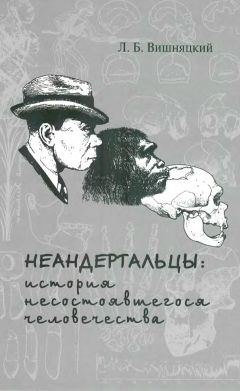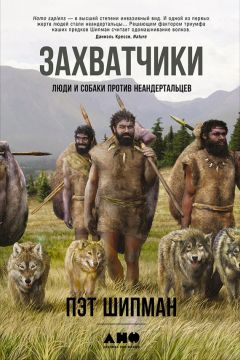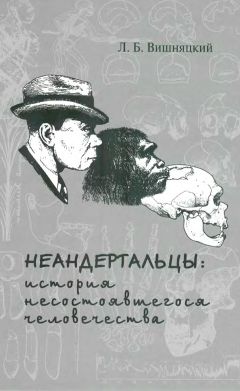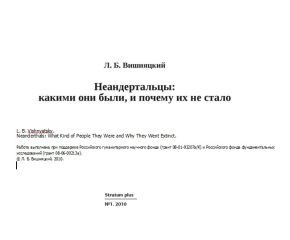Flas D. Etude de la continuite entre le Lincombien-Ranisien-Jerzmanowicien et le Gravettien aux pointes pedonculees septentrional// PE. 2000-2001. N 16-17. P. 163-189.
Freund G. Die Blattspitzen des Palaolithikums in Europa. Bonn: Ludwig Rohrscheid Verlag. 1952.
Froehle A. W., Churchill S. E. Energetic competition between Neandertals and anatomically modern humans // PA. 2009. P. 96-116.
Gamble C. The Palaeolithic Societies of Europe. Cambridge: Cambridge University Press, 1999.
Gargett R. H. Grave shortcomings: the evidence for Neanderthal burial // С An. 1989. N30. P. 157-90.
Gargett R. H. Middle Palaeolithic burial is not a dead issue: the view from Qafzeh, Saint-Cesaire, Kebara, Amud, and Dederiyeh // JHE. 1999. N 37. P. 27-90.
Gat A. Social organization, group conflict and the demise of Neanderthals // MQ. 1999. N39. P. 437-454.
Gaudzinski S., Turner E., AnzideiA. P., Alvarez-Fernaandez E., Arroyo-Cabrales У., Cinq-Mars J.,Dobosi V. T.,Hannus A., Johnson E., Mtinzel S. C., Scheer A., Villa P. The use of Proboscidean remains in every-day Palaeolithic life // QI. 2005. N 126- 128. P. 179-194.
Gaudzinski-Windheuser S., Niven L. Hominin subsistence patterns during the Middle and Late Paleolithic in Northwestern Europe // J.-J. Hublin and M. P. Richards (eds). The Evolution of Hominin Diets: Integrating Approaches to the Study of Palaeolithic Subsistence. Springer. 2009. P. 99-111.
Geist V Neanderthal the hunter//NHR. 1981. N 90. P. 26-36.
Genty D. et al. Precise dating of Dansgaard-Oeschger ossillatioins in western Europe from stalagmite data //Nature. 2003. N 421. P. 833-837.
Giacobini G. En parallele aux sepultures. Histoire des idees sur d'autres pratiques mortuaires attribuees aux Neandertaliens // CRP. 2006. N 5. P. 177-182.
Glantz M., Athreya S., Ritzman T. Is Central Asia the eastern outpost of the Neandertal range? A reassessment of the Teshik Task child// AJPA. 2009. N 138. P. 45-61.
Goldberg E. The Executive Brain: Frontal Lobes and the Civilized Mind. London: Oxford University Press, 2002.
Gomez-Olivencia O., Eaves-Johnson K. L., Franciscus R. G., Carretero J. M, ArsuagaJ. L. Kebara 2: new insights regarding the most complete Neandertal thorax // JHE. 2009. N 57. P. 75-90.
Goodwin W., Ovchinnikov L Ancient DNA and the Neanderthals // H.-J. Bandelt, V. Macaulay and M. Richards (eds). Human Mitochondrial DNA and the Evolution of Homo sapiens (Nucleic Acids and Molecular Biology 18). Berlin/Heidelberg: Springer, 2006. P. 201-224.
Gowlett J. A. J. The early settlement of northern Europe: Fire history in the context of climate change and the social brain // CRP. 2006. N 5. P. 299-310.
Grant M. The Passing of the Great Race. New York: Ch. Scribner's Sons, 1916.
Graves-Brown P. The ghost of Cain? Neanderthals, racism and speciesism // Antiquity. 1996. N 70. P. 978-981.
Green R. EKrause У., Ptak S. E., Briggs A. W., Ronan M. Г., Simons J. F., Du L., Egholm M, Rothberg J. M, Paunovic M, Paabo S. Analysis of one million base pairs of Neanderthal DNA // Nature. 2006. N 444. P. 330-336.
Green R. E. et al. A complete Neandertal mitochondrial genome sequence determined by high-throughput sequencing // Cell. 2008. N 134. P. 416-426.
Green R. E. et al. A draft sequence of the Neandertal genome // Science. 2010. N 328. P. 710-722.
Grimaud-Herve D. L'Evolution de l'encephale chez Homo erectus et Homo sapiens. Paris: CNRS, 1997.
Grunberg J. M. Middle Paleolithic birch-bark pitch // Antiquity. 2002. N 76. P. 15-16.
Guatelli-Steinberg D. Recent studies of dental development in Neandertals: Implications for Neandertal life histories // EA. 2009. N 18. P. 9-20.
Guatelli-Steinberg D. "Growing planes": incremental growth layers in the dental enamel of human ancestors // C. S. Larsen (ed). A Companion to Biological Anthropology. Chichester: Wiley-Blackwell. 2010. P. 485-500.
Guatelli-Steinberg D., Larsen C. S., Hutchinson D. L. Prevalence and the duration of linear enamel hypoplasia: a comparative study of Neandertals and Inuit foragers // JHE. 2004. N 47. P. 65-84.
Guipert G., Mafart B. Evolution de l'os frontal d''Homo heidelbergensis QtHomo neanderthalensis et comparaison avec l'homme moderne // Anthropologic. 2005. N43. P. 159-167.
Gunz P., Harvati K. The Neanderthal "chignon": Variation, integration, and homology // JHE. 2007. N 52. P. 262-21A.
Hackett A., Dennell R. Neanderthals as fiction in archaeological narrative // Antiquity. 2003. N 77. P. 816-827.
HambuckenA. La variabilite geographique des Neandertaliens // AP. 1997. N 108. P. 109-120.
Hammond M. The expulsion of the Neanderthals from human ancestry: Marcelin Boule and the social context of scientific research // SSS. 1982. N 12. P. 1-36.
Hardy B. L. Climatic variability and plant food distribution in Pleistocene Europe: Implications for Neanderthal diet and subsistence // QSR. 2010. N 29. P. 662- 679.
Harris J. R. Parental selection: A third selection process in the evolution of human hairlessness and skin color // MH. 2006. N 66. P. 1053-1059.
Harvati К. Quantitative analysis of Neanderthal temporal bone morphology using three dimensional geometric morphometries // AJPA. 2003a. N 120. P. 232-338.
Harvati K. The Neanderthal taxonomic position: models of intra- and inter-specific craniofacial variation // JHE. 2003b. N 44. P. 107-132.
Harvati K. Neanderthals and their contemporaries // W. Henke and I. Tattersall (eds). Handbook of Paleoanthropology, vol. 3. Berlin; Heidelberg; New York: Springer, 2007. P. 1717-1748.
Harvati К., Frost S. R., McNulty К. P. Neanderthal taxonomy reconsidered: Implications of 3D primate models of intra- and interspecific differences // PNAS. 2004. N 101. P. 1147-1152.
Harvati КGunz P., Nicholson E. A 3D look at the Tabun C2 jaw // TN. 2006. N 2. P. 117.
Hawks J. Selection on mitochondrial DNA and the Neanderthal problem // K. Harvati, T. Harrison (eds). Neanderthals Revisited: New Approaches and Perspectives. Dordrecht: Springer, 2006. P. 221-237.
Hawks J., Cochran G. Dynamics of adaptive introgression from archaic to modern humans//PA. 2006. P. 101-115.
Hawks J., WolpoffM. H. The accretion model of Neandertal evolution // Evolution. 2001. N55. P. 1474-85.
Hayden B. The cultural capacities of Neandertals: a review and evaluation // JHE. 1993. N24. P. 113-146.
Hebsgaard M. ВWiuf C., Thomas M, Gilbert P., Glenner H., Willerslev E. Evaluating neanderthal genetics and phylogeny // JME. 2007. N 64. P. 50-60.
Heim J.-L. Les hommes fossiles de La Ferrassie (Dordogne) et le probleme de la definition des Neanderthaliens classiques // L'Anthropologie. 1974. N 78. P. 312-78.
Heim J.-L. La nouvelle reconstitution du crane neandertalien de la Chapelle-aux- Saints. Methode et resultats // BMSAP. 1990. N 1. P. 95-118.
Heim J.-L., Воё L.-J., Abry C. La parole a la portee du conduit vocal de l'homme de Neandertal. Nouvelles recherches, nouvelles perspectives // CRP 1. 2002. P. 129- 134.
Henneberg M. Decrease of human skull size in the Holocene // HB 60. 1988. P.395-405.
Henry A. G., Piperno D. Plants in Neanderthal diet: Plant microfossil evidence from the dental calculus of Shanidar III // PA. 2008. Al 1-A12.
Hernandez Fernandez M. Rodent paleofaunas as indicators of climatic change in Europe during the last 125,000 years // QR. 2006. N 65. P. 308-323.
Herrera K. J., Somarelli J. ALowery R. K., Herrera R. J. To what extent did Neanderthals and modern humans interact? // BR. 2009. N 84. P. 245-257.
Higham T. Revised direct radiocarbon dating of the Vindija G1 Upper Paleolithic neandertals // PNAS. 2006. N 103. P. 553-557.
Higgins R. Reassessing Neanderthal locomotor efficiency on a non-plain terrain // AJPA. 2010. N 141 (Supplement 50). P. 127-128.
Hockett В., Haws J. A. Nutritional ecology and the human demography of Neandertal extinction // QI 137. 2005. P. 21-34.
Hofreiter M3 Stewart J. Ecological change, range fluctuations and population dynamics during the Pleistocene // CB 19. 2009. R584-R594.
Holliday T. W. Postcranial evidence of cold adaptation in European Neanderthals // AJPA 104. 1997. P. 245-258
Holliday T. W. Neanderthals and modern humans: an example of a mammalian syngameon? // K. Harvati and T. Harrison (eds). Neanderthals Revisited: New Approaches and Perspectives. Dordrecht: Springer, 2006. P. 281-297.
Holloway R. L. The poor brain of Homo sapiens neanderthalensis: see what you please... // Delson E. (ed). Ancestors: The hard evidence. New York: Alan R. Liss, 1985. P. 319-324.
Holloway R. L., Broadfield D. C., Yuan M. S. Brain Endocasts: The Paleoneurological
Evidence. (The Human Fossil Record, vol. III). Hoboken, N. J.: Wiley & Sons, 2004.
Holloway R. L. Brain fossils: Endocasts // L. R. Squire (ed). Encyclopedia of Neuroscience. Oxford: Academic Press, 2009. P. 353-361.
Holton N. EFranciscus R. G. The paradox of a wide nasal aperture in cold adapted Neandertals: a casual assessment // JHE. 2008. N 55. P. 942-951.
Horan R. D., Bulte E., Shogren J. F. How trade saved humanity from biological exclusion: an economic theory of Neanderthal extinction // JEBO. 2005. N 58. P. 1-29.
Houghton P. Neandertal supralaryngeal vocal tract // AJPA. 1993. N 90. P. 139- 146.
Howell F. C. The place of Neanderthal Man in human evolution // AJPA. 1951. N9. P. 379-416.
Howell F. C. Pleistocene glacial ecology and the evolution of "classic'' Neandertal man // SJA. 1952. N 8. P. 377-410.
Howell F. C. The evolutionary significance of variation and varieties of «Neanderthal» man // QRB. 1957. N 32. P. 330-347.
Howells W. W. Neanderthals: names, hypotheses, and scientific method // AA. 1974. N76. P. 24-38.
Hrdlicka A. The Neanderthal phase of man // JRAI. 1927. N 57. P. 249-274.
Hubbe M, Hanihara Г., Harvati K. Climate signatures in the morphological differentiation of worldwide modern human populations // AR. 2009. N 292. P. 1720- 1733.
Hublin J.-J. Quelques caracteres apomorphes du crane neandertalien et leur interpretation phylogenetique // CRASP. 1978. N 287. P. 923-926.
Hublin J.-J. Caracteres derives de la region occipito-mastoi'dienne chez les Neandertaliens // E. Trinkaus (ed). L'Homme de Neandertal. Vol. 3. L'Anatomie. Liege: ERAUL. 1988. P. 67-73.
Hublin J.-J. Climatic changes, paleogeography and the evolution of Neanderthals // T. Akazawa, K. Aoki, O. Bar-Yosef (eds). Neanderthals and Modern Humans in Western Asia. New York: Plenum Press, 1998. P. 295-310.
Hublin J.-J. Modern-nonmodern hominid interactions: A Mediterranean perspective // O. Bar-Yosef and D. Pilbeam (eds). The Geography of Neandertals and Modern Humans in Europe and the Greater Mediterranean. Cambridge: Harvard University Press, 2000. P. 157-182.
Hublin J.-J. Neandertal as another humankind: where are we now? // TN. 2006. N2. P. 55-59.
Hublin J.-J. Origine et evolution des Neandertaliens // B. Vandermeersch, B. Maureille (dir). Les Neandertaliens. Biologie et cultures. Paris: Editions du CTHS, 2007. P. 95-107.
Hublin J.-J. The origin of Neandertals // PNAS. 2009. N 106. P. 16022-16027. Hublin J.-J., Bailey S. E. Revisiting the last Neandetals // N. J. Conard (ed). When Neanderthals and Modern Humans Met. Tubingen: Kerns Verlag, 2006. P.105-128.
Hublin J.-J., Weston D., Gunz P., Richards M, Roebroeks W., Glimmerveen J., Anthonis L. Out of the North Sea: the Zeeland Ridges Neandertal // JHE. N 57. 2009. P. 777-785.
Humphrey N. Cave art, autism, and the evolution of the human mind // CAJ. 1998. N8. P. 165-191.
Hutchinson D. L.,Larsen C. S., Choi I. Stressed to the max? Physiological perturbation in the Krapina Neandertals // CAn. 1997. N 38. P. 904-914.
Huxley Т. H. Further remarks upon the human remains from the Neanderthal // NHR 1. 1864. P. 429-446.
Inizan M.-L., Roche H., Tixier J. Technology of Knapped Stone. Meudon: C. R. E. P., 1992.





